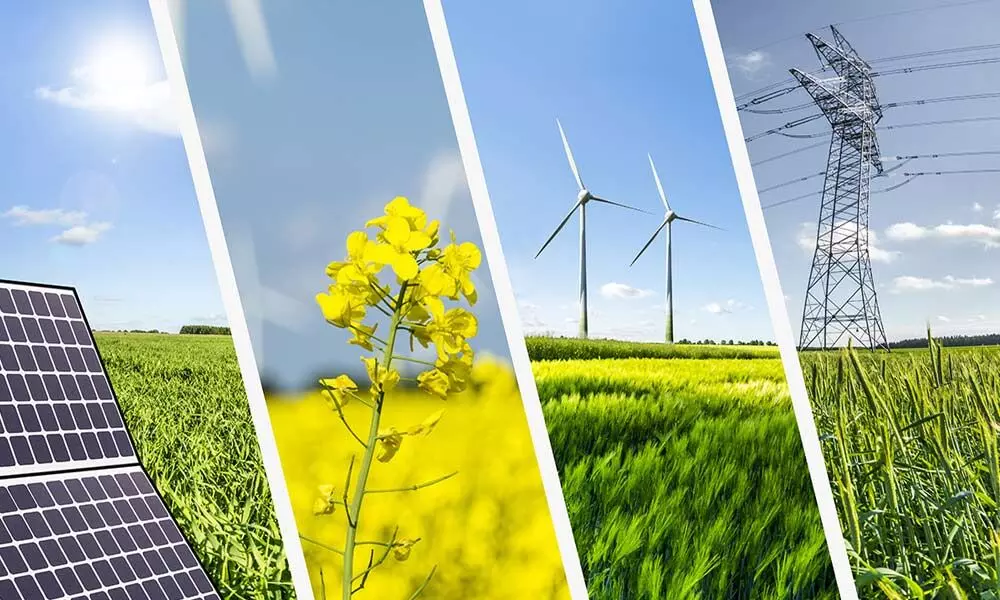Renewables cheaper than coal power in India: Study
New research suggests that there might not even be an economic rationale for building new coal power plants
image for illustrative purpose

The study shows that once environmental costs of coal and balancing and back-up costs of renewables are accounted for, the total cost of electricity from almost all coal plants exceeded that of new solar and wind plants in 2018-19. This holds true even without taking into account the climate change impacts. Even the social operating cost of a majority of coal plants exceeds the social cost of electricity from new renewable
Mumbai: New research shows that renewables are cheaper than coal power in India, even after accounting for the intermittency of renewables due to the high pollution from coal that causes disease and death.
It has been acknowledged for some time that India's emission reduction goals are at odds with its plans on the expansion of coal-fired power plants. New research now suggests that there might not even be an economic rationale for new coal plants.
A recent study outlined the private and external costs of electricity from coal, solar, and wind using the most recent data from India. The study shows that once environmental costs of coal and balancing and back-up costs of renewables are accounted for, the total cost of electricity from almost all coal plants exceeded that of new solar and wind plants in 2018-19. This holds true even without taking into account the climate change impacts. Even the social operating cost of a majority of coal plants exceeds the social cost of electricity from new renewables. The study estimated the total external cost of coal-fired power to be about 1.64 Rs/KWh including environmental costs associated with coal mining, agriculture impact due to reduced insolation, and mortality cost of air pollution based on an earlier study that estimated the number of deaths caused by coal power plants to be 1, 35,000 in 2018.
"The auction mechanism used by the National Solar Mission along with global technical progress has pushed down renewable costs by 90 per cent over the last decade. At the same time, population growth that results in increased mortality, and income growth that raises the value of statistical life have raised the external cost of coal. Renewables are intermittent, so our study adds the cost of balancing the power system to arrive at the social costs of renewables," says Professor E Somanathan, one of the authors of the study, who heads the Centre for research on the Economics of Climate, Food, Energy and Environment at the Indian Statistical Institute.
The authors estimate an average social cost of Rupees 3.77 per kilowatt-hour in 2018- 19 for solar PV and wind. The study also projected social costs in 2025 for various sources of electricity. The social costs of coal do not include climate externalities or stranded asset risk and hence are conservative. It is found that renewable with storage in 2025 will be competitive with new coal power plants from a social perspective.
"It is time to recognize the inevitable: Renewables with storage will replace coal power plants. If environmental and social costs are taken into account, new coal power plants will become uneconomical from a purely domestic Indian perspective as early as 2025," says Dr Shoibal Chakravarty of the Divecha Centre for Climate Change at the Indian Institute of Science, another author of the study.
A visionary and forward-looking policy would encourage the faster introduction of renewables with storage, stop the building of new coal power plants, re-tool existing coal power plant to be more flexible, and manage the social and economic ramifications of the transition from coal and other fossil fuels, including transition assistance to coal-dependent workers and regions. Significant international climate finance assistance could enable a faster transition, and India and other developing countries should aim for this in international climate treaty negotiations, he added.

